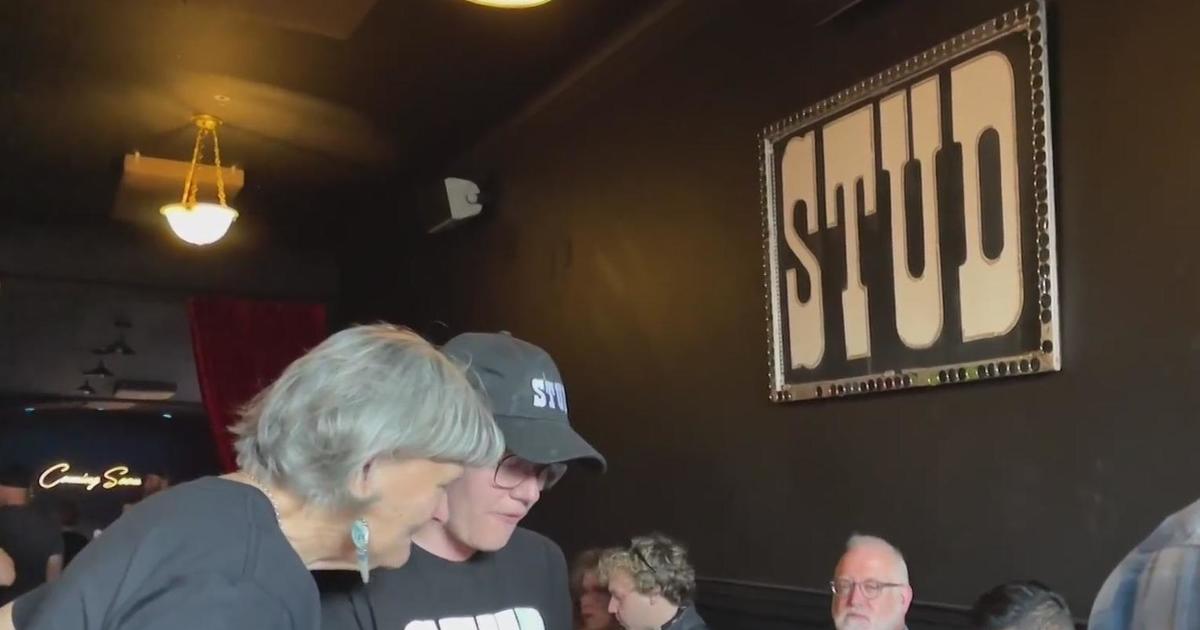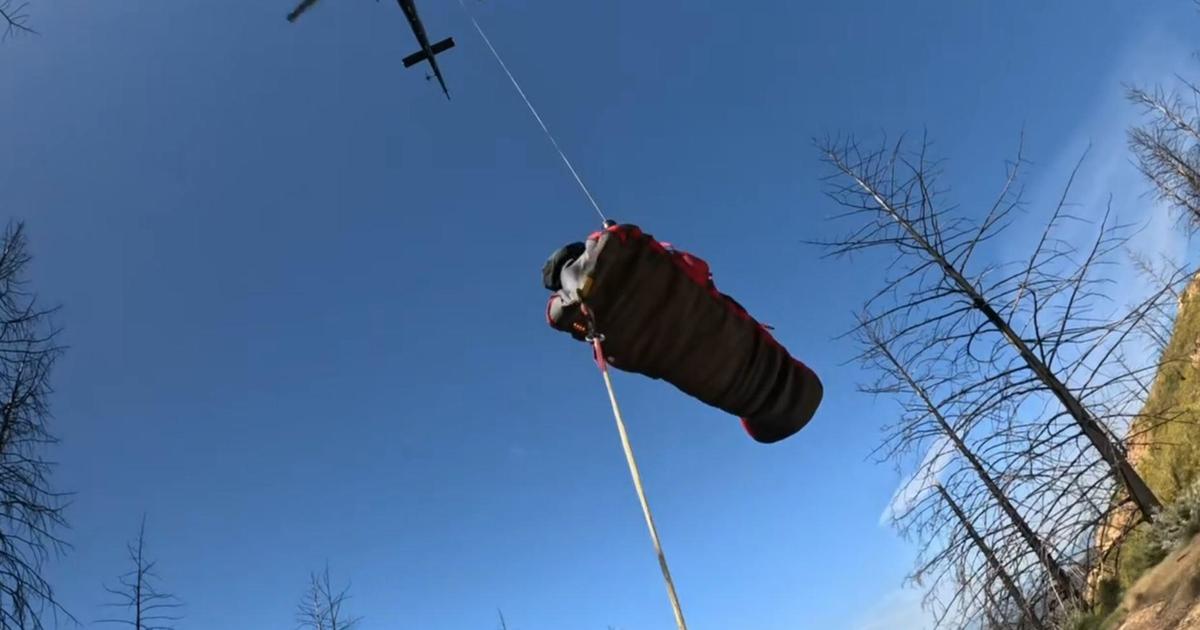Bay Area Bowlers See Bleak Future For Bowling Alleys Amid COVID-19 Pandemic
SANTA CRUZ (CBS SF) California public health officials are facing pushback on the state's coronavirus pandemic reopening plan from an unlikely source: bowling alley owners and bowling enthusiasts.
Bowling alley owners across the state and their trade associations have decried California's tiered pandemic reopening system, arguing that it is killing small, family-owned businesses.
"Most of them think they've only got maybe a month or two left before they have to decide whether they want to close permanently or not," said Bob Thomas, executive director of the trade association Nor Cal Bowling Centers.
The state's bowling alley owners and bowling enthusiasts have been exasperated in recent months with the state's reopening plans, which do not permit bowling alleys to open before activities like indoor dining, gyms and fitness centers and movie theaters.
• ALSO READ: Comedians Rally To Save Struggling Clayton Bowling Alley
In August, a little more than a week before Gov. Gavin Newsom and the state's public health officials rolled out California's tiered reopening plan, bowlers in San Diego rallied to call attention to concerns that the industry could collapse altogether if the state didn't allow them to open.
While such rallies have not been common in the Bay Area, Thomas said Nor Cal Bowling has pleaded with state and local public health officials as well as state legislators to "just communicate with us."
Currently, a county must be in Tier 3, or the "orange tier," of the state's reopening plan to allow so-called family entertainment centers like bowling alleys and climbing gyms to reopen at 25 percent of maximum capacity.
Only three of the Bay Area's counties -- San Francisco, Alameda and Santa Clara -- are in the orange tier.
State officials have described the reopening plan as "slow and stringent," with the intent of reducing the chance of another large-scale outbreak in California's largest population centers.
"We've heard from the bowling alleys and many, many of the different venue types that fall into the family entertainment category that is part of the blueprint," state Health and Human Services Secretary Dr. Mark Ghaly said during a Sept. 25 briefing on the state's pandemic response.
"As we hear from those different industries, we're sitting down in earnest with conversations to understand their situations and really trying to .. find the right part of that blueprint to have them fit in," Ghaly said.
Some bowling alleys are doubly affected by the pandemic's closure of companion venues like bars and arcades.
The Boardwalk Bowl in Santa Cruz, owned by the Santa Cruz Seaside Company, which also owns the Santa Cruz Beach Boardwalk and multiple nearby hotels, includes a small arcade and Coasters Bar and Grill, which has begun serving food outside as a way of recouping a modicum of its regular revenue.
Boardwalk Bowl director Willie King said he has argued to Santa Cruz County health officials that the facility has already shown it can safely reopen at a lower capacity, as it did for a month before closing in mid-July when Newsom ordered all family entertainment centers to close.
"Obviously we're not going to be able to reopen like it was 2018," King said. "We have to spread people out, limit the number of people in the building, do all the protocols, but we're ready to rock and roll."
Santa Cruz County is currently in Tier 2, or the "red tier," of the state's reopening system, allowing some businesses in the county to resume indoor operations.
However, counties in Tier 2 are only allowed to open outdoor family entertainment centers like go-kart tracks, mini-golf and batting cages.
"My gym can open up in this county," King said. "Movie theaters can open up in this county but the bowling center can't. It doesn't make sense, we should be at least on their level."
King added that the bowling alley's closure has had a cascading effect on the city's tax revenue and its partner organizations like Big Brothers Big Sisters and veterans and cancer support nonprofits, which regularly hold fundraisers at the Boardwalk Bowl and have now had to cancel.
"Those (cancellations) hurt us a lot and hurt those entities a lot too, and that makes our communities weaker," he said, "because they're not getting support."
The Boardwalk Bowl is unlike some other bowling alleys in the Bay Area, however, in that Santa Cruz Seaside owns the building it occupies and has not accrued the same costs as some other businesses that had to pay rent while shuttered during the pandemic.
King argued the state has already lost its most important bowling alley in Fremont's Cloverleaf Family Bowl. Cloverleaf's owners announced in July that it would close for good after 61 years.
"Through the past (four-plus) months, we have held out hope for a reopening date, a date that has not come from the state or county of Alameda," Cloverleaf's owners said in a July 25 open letter to the bowling alley's patrons.
"With the current status of the state of California, it appears that bowling is still months away from an opening date and especially in Alameda County."
Jim Chambers, who co-owned Cloverleaf for the last 14 years and began working there in 1970, said the bowling alley's lease was set to expire in three years. Local officials had already discussed approving a housing development on the property even before the pandemic.
Chambers said the lease's imminent expiration and the loss of income from the pandemic effectively made the decision for him and Mike Hillman, his business partner and the grandson of Cloverleaf's original owner.
"I put over $200,000 of my own money to try to keep it going, because everybody kept saying 'you're going to open in a month,' 'you're going to open this month,' 'you're going to open in two weeks,'" he said. "Obviously, never happened."
Cloverleaf considered setting up an online crowdfunding campaign in an effort to raise the funds necessary to stay open, Chambers said, but ultimately opted against doing so, as they would have had to raise upwards of $500,000 just to remain open through Jan. 1.
Thomas and Chambers noted that the state of California is the only state in the country that does not currently allow bowling alleys to operate statewide, even with health and safety modifications.
Most cities and towns have only one bowling alley, they said, raising the specter of businesses like Cloverleaf not being replaced post-pandemic.
"You're going to see bowling centers closing permanently in little towns, small towns that have really nothing else to do but bowling or something to that effect," Thomas said.
Southern Alameda County already had a dearth of bowling alleys even before Cloverleaf's closure, according to Chambers.
"We had one of the finest youth programs in the nation, and now those kids have nowhere to bowl," he said. "Fremont, Newark, Union City and Hayward, that's almost a million people, there's not a bowling center."
Also frustrating bowling enthusiasts, Thomas said, is the fact that some counties are in the orange tier, but are being even more stringent than the state's guidelines and still will not allow bowling alleys to reopen.
Alameda and San Francisco county public health officials have both said they want to stagger the reopening of some businesses even if they are allowed under the state's guidelines as they continue to monitor the virus' spread.
"We are glad to see improving case rates and decreasing test positivity, including among our communities of color, but we caution residents that cases can rise very quickly, as we saw during the summer surge," Alameda County interim health officer Dr. Nicholas Moss said in a statement Tuesday, when the county moved into the orange tier.
As part of that statement, Alameda County said it will not allow activities like dining and worship services to resume inside for at least two more weeks, let alone activities like bowling.
King, Thomas and Chambers all agreed the bowling industry is in dire straits, with few signs of improvement on the horizon.
"If they don't open up soon they're going to completely destroy the bowling industry," Chambers said.
"(Bowling alleys) are asking for the opportunity to just be able to try and survive," Thomas said. "Let us just get up, we know we're not going to be busy ... but just give us an opportunity."
© Copyright 2020 CBS Broadcasting Inc. and Bay City News Service. All Rights Reserved. This material may not be published, broadcast, rewritten or redistributed.



